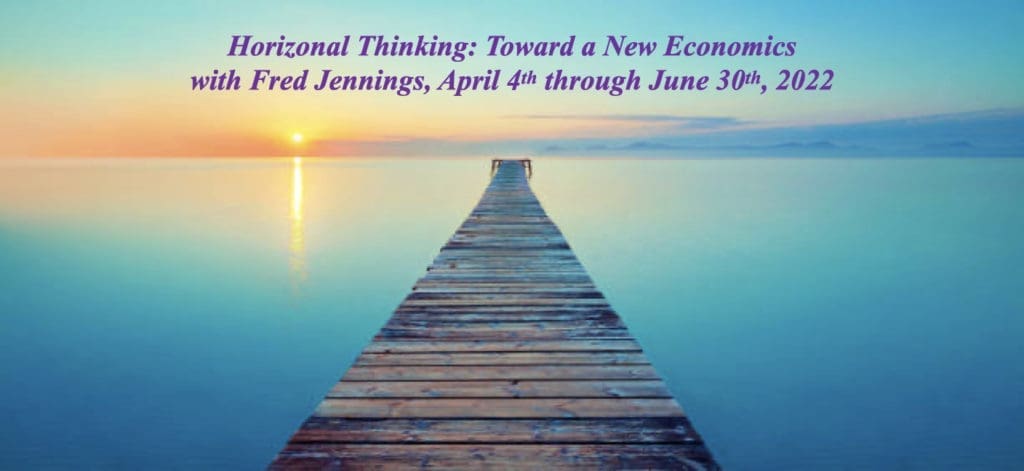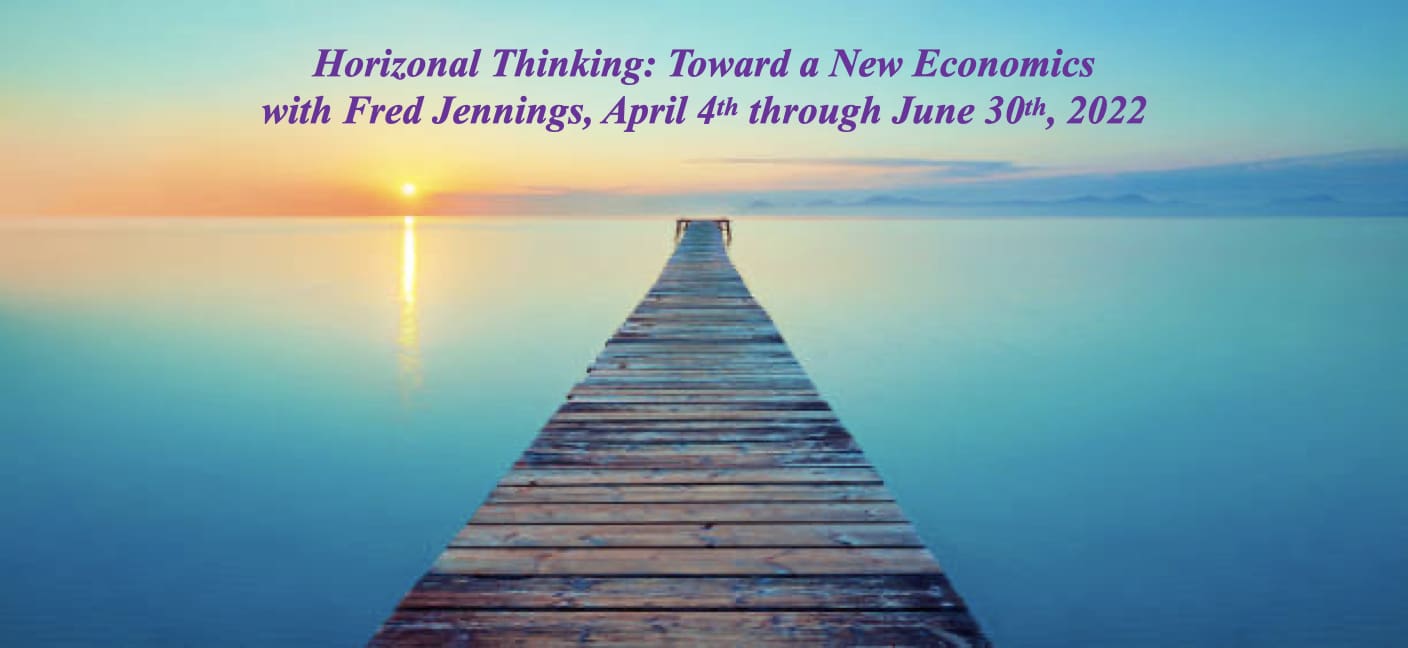
Horizonal Thinking: Toward a New Economics
Mondays and Thursdays, April 4th – June 30th at 1pm ET
Course Format
This online course will consist of 24 one-hour classes over 12 weeks to be held live on Zoom. Classes will begin on April 4th, 2022, and will take place on Mondays and Thursdays at 1:00 PM Eastern US time. The course will run until June 30th, 2022, with a break built in for Memorial Day (Monday, May 30th). All course readings will be provided to students in digital form.
Course Description
All human-caused ecological losses are – almost by definition — horizonal. We set into motion enduring consequences in everything we do; the issue is how well we anticipate those effects, in terms of our range of awareness and conscience. This is why a properly ecological economic analysis must incorporate planning horizons as central to its explanation. The purpose of this course is to outline the history of Dr. Fred Jennings’ unique analysis of a new economics based on horizonal theory, and why this sort of analysis should have developed during the last century, had this field not entered what Jennings calls an “Age of Denial” in 1939, from which it has not yet fully emerged.
Though you will learn a lot of economics during this course, it is not specifically aimed to people knowledgeable in this field. What you should have to enroll in this course is a burning curiosity about why our society has evolved toward the destruction of our ecological life-support systems, and how we might change our economic culture to protect ourselves against this destruction.
About the Teacher
Fred Jennings holds a B.A. from Harvard College and a Ph.D. from Stanford University, both in economics, and has taught economics courses at principles, intermediate and graduate levels. He has spent 40-50 years developing a novel cognitive view of economics based on a theory of planning horizons as a means to distinguish larger perspectives from myopic concerns, one that yields a reversal of our economic beliefs away from competition in favor of cooperation as an efficient form of social organization. This course will lead to surprising conclusions about the academic process and why a discipline went so wrong, and has not yet repaired itself by adopting more realistic conceptions of ecological and economic processes.
For questions on this course, please email Fred Jennings at peakdawn@yahoo.com.
To join, register below:

